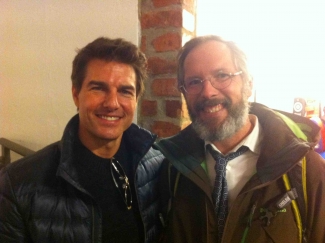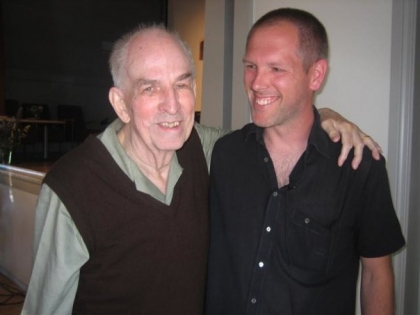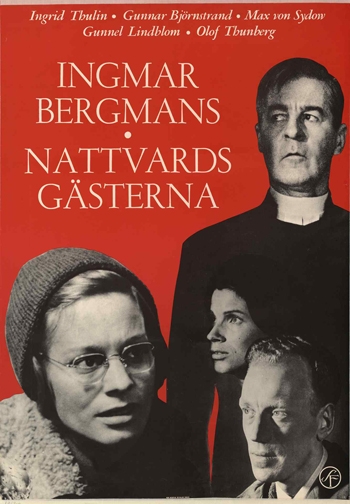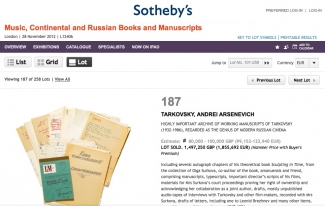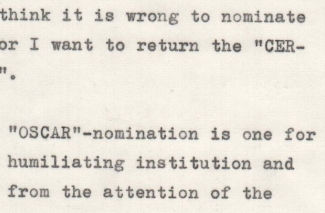

Last Saturday, Leos Carax’ Holy Motors received the best foreign-language picture award by the Los Angeles Film Critics Association. Unable to accept the award in person, Carax sent a pretty wonderful recorded speech:
"Hello, I'm Leos Carax, director of foreign-language films. I've been making foreign-language films my whole life. Foreign-language films are made all over the world, of course, except in America. In America, they only make non-foreign-language films. Foreign-language films are very hard to make, obviously, because you have to invent a foreign language instead of using the usual language. But the truth is, cinema is a foreign language, a language created for those who need to travel to the other side of life. Good night."
I don’t know about you, but personally I have a sweet spot for all this business of receiving with one hand and slapping with the other. As like Jean-Paul Sartre flat out refusing the Nobel price may seem more honourable, but this sort of compromise gesture at least has the merit of subtlety. In 2010, Carax’ compatriot Jean-Luc Godard did something similar when he, to the question on what the honorary Academy Award he was about to recieve meant to him, replied:
“Nothing. If the Academy likes to do it, let them do it. But I think it’s strange. I asked myself: Which of my films have they seen? Do they actually know my films? The award is called The Governor’s Award. Does this mean that Schwarzenegger gives me the award?”
As Carax, Godard didn’t show up for the ceremony, claiming he neither had the energy to apply for a visa nor to take a trans-Atlantic flight.
However, the master of the genre of receiving but not quite has to be Ingmar Bergman. A letter from him to the Academy of Motion Pictures Arts and Sciences in our collection was shown at a large Bergman exhibition in Los Angeles (at AMPAS, fittingly enough), Berlin and Ghent 2010–11, and gained some attention.
As an homage to Carax, now is the time to tell the full story. It all began with Wild Strawberries being Oscar-nominated for best writing in 1959. Bergman politely replied to the Academy’s invitation that he unfortunately was unable to come, but showed no other signs of discomfort:
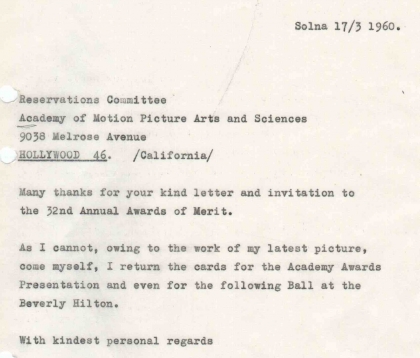
Wild Strawberries lost, however, to Pillow Talk. Which demonstrates at least two things: 1) Rock Hudson and Doris Day are funnier than Victor Sjöström and Ingrid Thulin; 2) the winner is not necessarily that film considered by the cruel History to be best – among other nominees that year we find for example The 400 Blows and North by Northwest (which, along with Wild Strawberries, use to fare better than Pillow Talk in top 50 lists of best films ever).
When then Virgin Spring was nominated to best foreign-language picture the following year, Bergman seemed to have lost his temper and wrote the letter which, as I said, already has reached the Internet:
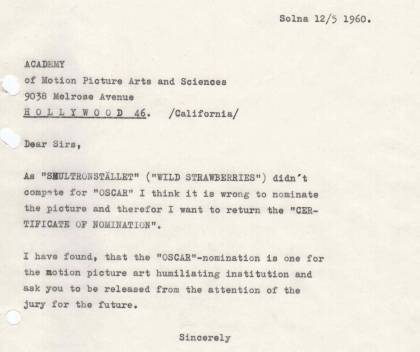
But – and here is the moral of this story – what do you think happened? Well, of course and in spite of Bergman’s letter, Virgin Spring did win, marking the first Academy Award to a Bergman movie, and adding fuel to his international career.
It is easily suspected that Bergman used some reverse psychology there; a strategy so successful that he won the same award next year again, with Through a Glass Darkly.
P.S.
In total, Bergman films were to win three awards for best foreign-language picture (besides the already mentioned, Fanny and Alexander); one best picture award (also Fanny and Alexander); two cinematography awards (Cries and Whispers, and, er, Fanny and Alexander); one costume design award and one art direction award (both Fanny and Alexander – the picture won four of the six categories it was nominated in.
In 1971, Bergman accepted the Irving G. Thalberg Memorial Award (the same honorary Oscar Godard was to be awarded in 2010), and furthermore, Bergman films received fourteen nominations without winning in the categories of costume, original screenplay, direction, best picture and leading actress. (Yes, the Academy Awards Database really is addictive.)



